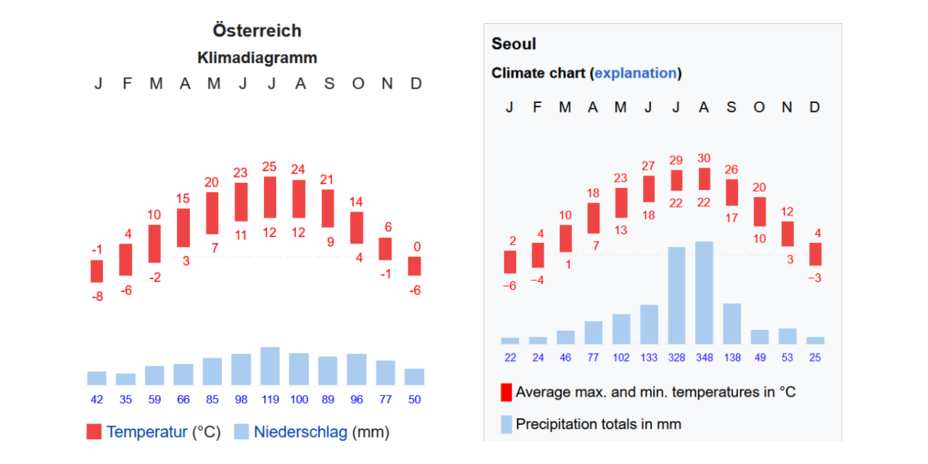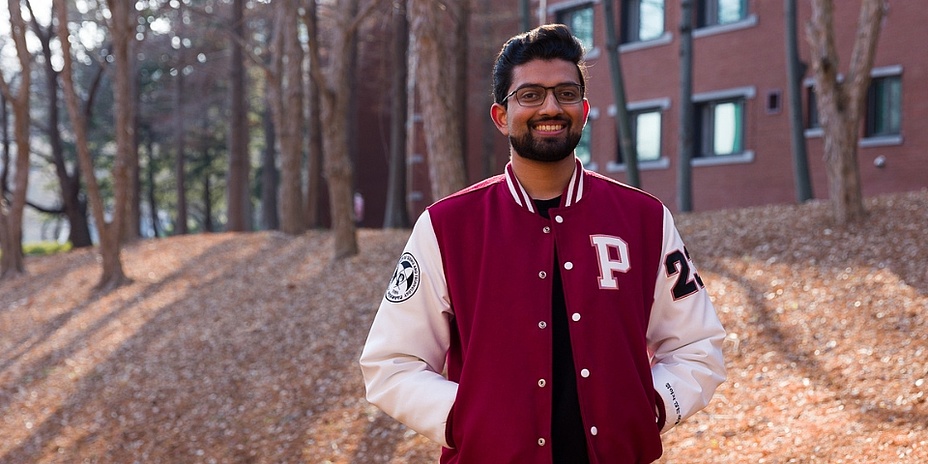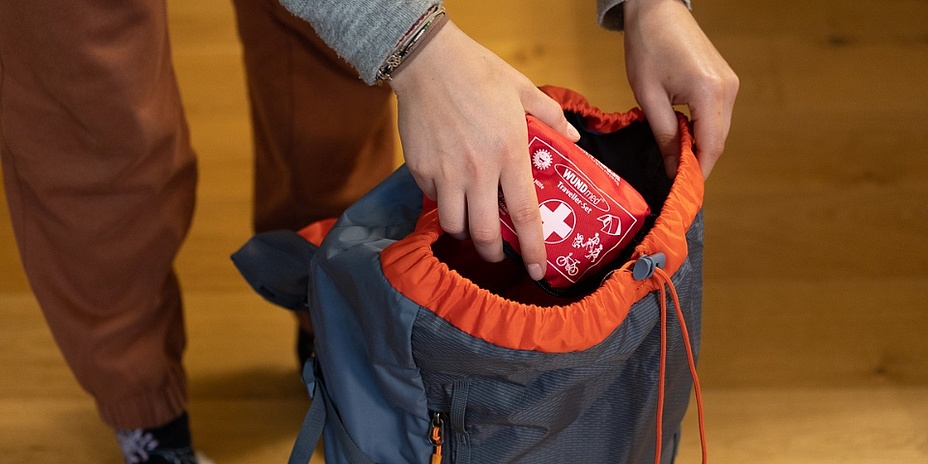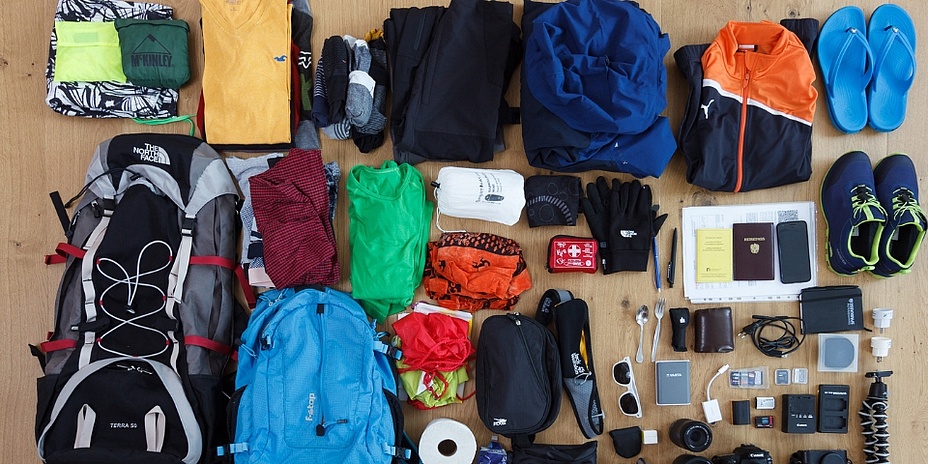Organising a semester abroad is a lot of work, as I can confirm from my own experience. Once all the organisational steps have finally been completed, hopefully the suitcases and rucksacks are packed soon enough and the question arises as to what you need to take with you. I have created this packing list so that at least the most important and hard-to-replace items find their way to your new home abroad.
Clothes
Let's start with clothing. It is very difficult to give specific recommendations for this category, as the optimal choice of clothes depends very much on individual needs and the climatic conditions of the destination country. I find it very useful to study a climate diagram and compare it with a reference that you know well, for example the climate in Austria!

This gives you a good overview in a very short time. It is also best to look at the climate data for the city in question, as this can differ greatly from the average national climate in some countries.
Almost regardless of which country you spend your semester abroad in, there are a few items of clothing that you should definitely take with you or buy as soon as you arrive in the country. This includes:
- Headgear (e.g. hat, cap)
- Rain protection (rain jacket, umbrella, poncho)
- Sunglasses
- (Thin) gloves
- Scarf, tube scarf
- Swimsuit
- Flip-Flops, slippers
- Different T-shirts, sweaters, jackets, pants, etc.
- Shoes, sport shoes
Less is more: Traveling teaches you that you actually need much less clothing than you originally think. So, if in doubt, take one less shirt or pair of pants with you. You can buy clothes anywhere and you often want to take home a few T-shirts or sweaters for yourself at the university abroad as a souvenir. At my university in Pohang, South Korea, a college jacket was designed and ordered once a semester by the exchange students. Not only did I buy a warmer jacket for the fall, but I also had a perfect souvenir!

How much underwear should you take with you? Rule of thumb: Depending on how often the laundry needs to be washed. I wash once a week. That's enough underwear for seven days plus one spare.
Hygiene
Also very individual. You can buy the essentials abroad anyway, for example just take a small shower gel with you and get a large version abroad.
- Tooth brushing products
- Soap, shower gel, shampoo
- Towel
- Razor
- Nail set
- Deodorant
- Sun cream, moisturizer
- Handkerchiefs
Medicine
In pharmacies all over the world you can get the most important medicines, but perhaps not as personalised as you are used to. That's why it's important to take with you the medicines that you use frequently, that work best or that you depend on.
Regardless of this, the following medications are, in my opinion, mandatory:
- If you have little experience, you can take two different painkillers with different active ingredients and/or dosages in case you cannot tolerate one of them well. For example painkillers with ibuprofen or mefenamic acid.
- Fever-reducing medication, for instance with the active ingredient paracetamol
I would also recommend medicine for nausea, diarrhea and allergies (antihistamines), depending on the region, personal background and time of year.
You should also have a few plasters with you for minor injuries. However, if you are also planning sporting activities or excursions, you could put together a mini first aid kit. I always pack the following:
- Gauze bandages for dressings
- Wound dressings for aseptic wound care
- Plasters in different sizes
- Scissors
- Rescue blanket for thermoregulation

Electrical devices
- Laptop, Tablet
- Camera including accessories (memory cards, batteries, tripod...)
- Headphones
- Chargers and charging cables
- Power bank
- Socket adapter suitable for the destination country
- Torch
Adapters and standard charging cables can be bought easily and cheaply anywhere, but it would still be better to have everything with you.
Money
In addition to the normal debit card, it is highly recommended that you obtain at least a second card, for example a credit card, as it often happens that a card is not accepted by a terminal for various reasons. It is also practical that credit cards often include international travel insurance. Don't forget to switch off GeoControl on your debit card, otherwise you won't be able to pay/withdraw money abroad. Changing euros into the local currency abroad is often cheaper than withdrawing money, especially at the airport.
- Debit card
- Credit card
- Cash for exchange
Documents
- Passport/identity card
- Vaccination certificate
- International driving license
- Copies of all documents (printed and digital)
- Flight tickets
Other equipment
You often need other items for living and studying. Perhaps these:
- Backpack, bags, laundry bag
- Drinking bottle
- Calculator
- Writing utensils, markers
- Paper, folders
- Scissors
- Rubber bands, paper clips, safety pins, tape

Two areas that are not on the packing list but should definitely be considered when preparing for a stay abroad are safety and language learning. Here are a few more tips.
Safety
Other countries have different safety standards and, especially outside Europe, it can also be dangerous if you don't look into the issue. If I want to find out about the security situation in a country, I like to use the country-specific travel information from the Austrian Foreign Ministry. There you can find out about the general security situation and get an initial idea.
Planning a semester abroad? Get an overview of the security situation in your destination country on the website of the Federal Ministry for European and International Affairs.
In general, the media likes to spread dramatic images and prejudices about many countries and the Ministry of Foreign Affairs also prefers to be on the safe side and tends to assess the security situation more cautiously and strictly. The most reliable information about a country's criminality and security comes from the people who live there. So you should ask the local population at the latest when you arrive and ask at your hotel, for example, how safe it really is in a city and which places you should avoid.
Language
Speaking the local language well is not necessary to do a semester abroad! On this topic, I have already written the blog post "You don't speak Korean? No problem!".
As long as you understand the language in which the courses are held to some extent, which will most likely be English, there is nothing to stop you from studying abroad! For everyday life, however, I can recommend learning the most important words and phrases such as hello, thank you and goodbye. There are countless (free) ways to do this, such as apps, YouTube tutorials, books, courses and much more. I myself used the apps Duolingo and Busuu for my semester abroad in Korea and can only recommend these apps.
![[Translate to Englisch:] [Translate to Englisch:]](https://www.tugraz.at/fileadmin/_processed_/1/7/csm_travel_luggage_by_Maximilian_Kern_6c10c6f9ce.jpg)



![[Translate to Englisch:]](https://www.tugraz.at/fileadmin/_processed_/b/a/csm_baju_melayu_by_Peter_Fuerlinger_bec25f974f.png)

